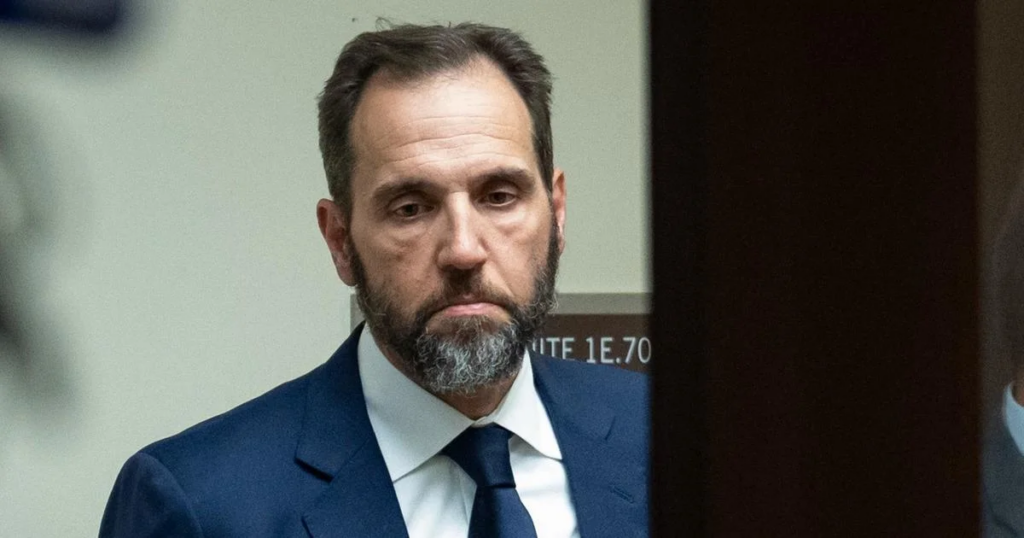What We Know About the Report, Resignation, and Court Battles
Special Counsel Ends High-Profile Investigations
Jack Smith, the special counsel tasked with investigating Donald Trump, has officially resigned. Smith’s work focused on two major cases: Trump’s efforts to overturn the 2020 election and his possession of classified documents at Mar-a-Lago. His resignation, effective Friday, marks the end of an extraordinary chapter in the Justice Department’s history.
Smith’s departure comes after he submitted his final report to Attorney General Merrick Garland on Tuesday. However, the release of the report is in legal limbo. Federal Judge Aileen Cannon, a Trump appointee, issued an order temporarily blocking its publication.

Justice Department Pushes for Release
The Justice Department argues that Cannon’s order exceeds her authority. Officials are appealing her decision, which currently halts any release until Monday. Garland has indicated he will only make the section related to the 2020 election public. The second volume, concerning Trump’s handling of classified documents, will remain private. This decision aligns with ongoing prosecutions involving Trump’s former co-defendants, Walter Nauta and Carlos De Oliveira.
Trump’s legal team has requested an extension of the hold, citing concerns about potential leaks. The Justice Department countered, noting that such delays could hinder transparency and accountability.
Court Setbacks and Legal Challenges
Smith’s investigations led to historic criminal charges against Trump, the first former president to face prosecution. However, both cases faced significant setbacks.
- The Documents Case: In July, Judge Cannon ruled that Garland lacked the authority to appoint Smith, effectively dismissing the case.
- The Election Case: The Supreme Court delayed proceedings while considering Trump’s claim of presidential immunity. The eventual ruling granted broad protections to sitting presidents, limiting accountability for actions during their term.
Trump’s reelection ultimately ended the prosecutions. Justice Department policy prohibits charging a sitting president. Smith dropped both cases after Trump’s victory, focusing instead on compiling his findings in a detailed report.

What’s in the Report?
The final report remains largely under wraps. Only Trump and his legal team have reviewed it, prompting sharp public statements. According to Trump’s lawyers, the report accuses him of leading “unprecedented criminal efforts” and describes him as the “head of the criminal conspiracies.”
Trump himself speculated that the document spans 500 pages. At a press conference, he dismissed the findings as politically motivated, reiterating calls for Smith’s prosecution.
Resignation and Fallout
Smith’s resignation was widely expected, with other Justice Department officials foreshadowing his departure. Trump has long criticized Smith, calling for his removal and even suggesting he be expelled from the country.
The Justice Department has declined to comment on Smith’s exit. Trump’s spokesperson also did not respond to inquiries. Smith leaves behind a contentious legacy, with his investigations polarizing the public and reshaping the legal landscape for presidential accountability.

The Legal Tug-of-War
The report’s fate now lies with the 11th Circuit Court of Appeals. The court will decide whether to lift Cannon’s order and allow Garland to release the election-related findings. Delays could push the report’s publication beyond Trump’s January 20 inauguration, raising questions about its future under a Trump-led Justice Department.
If the report remains unreleased, it could deepen skepticism about government transparency. Legal experts argue that public access to such investigations is crucial for democracy. However, Trump’s allies warn of potential leaks if Congress gains access to the findings.
What Comes Next?
The legal battle over Smith’s report highlights the complexities of investigating a former president. It underscores the tension between holding leaders accountable and navigating constitutional limits.
For now, the public waits to see whether the 11th Circuit will act swiftly or allow delays to persist. Meanwhile, Trump and his team continue to frame the investigations as politically motivated attacks, shaping public opinion ahead of his second term.
Smith’s resignation closes one chapter of this story but leaves many questions unanswered. As the legal and political battles continue, the implications of his findings will likely resonate for years to come.
Our Visitor






 Users Today : 49
Users Today : 49


